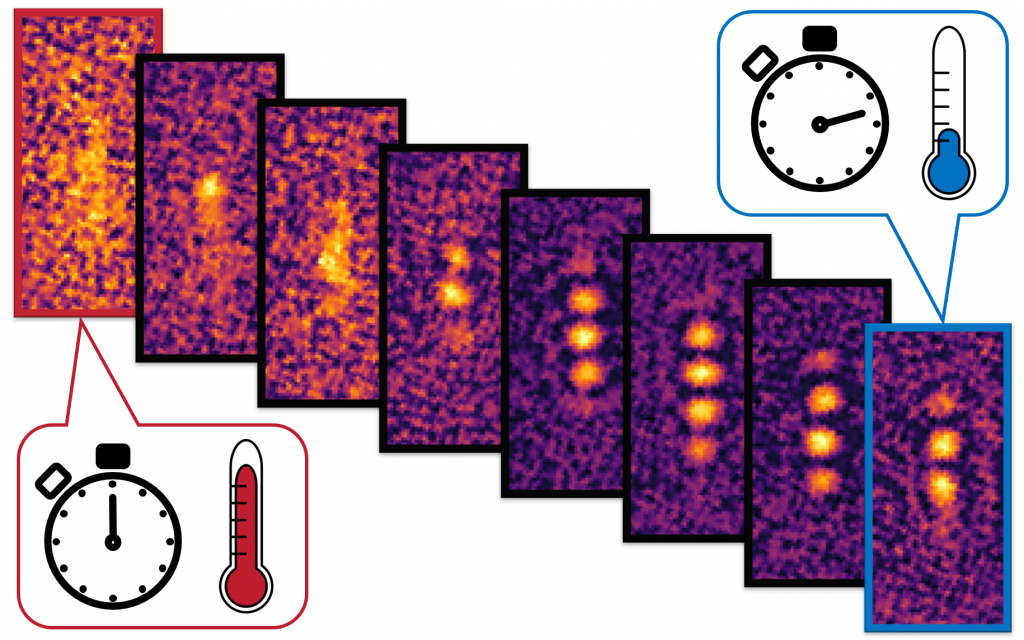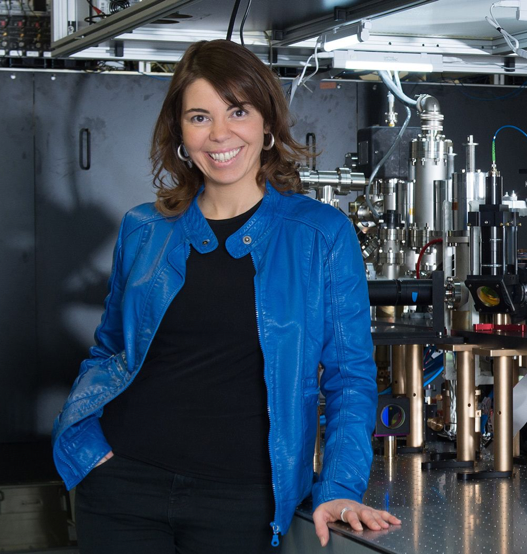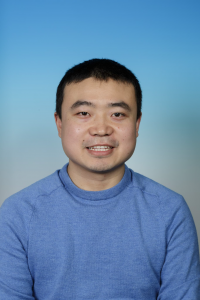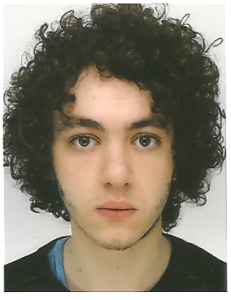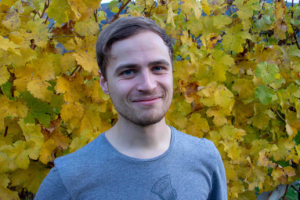
Long-Range Interactions Workshop 2026
Register until December 1st – Find more details in the “Our Events” menu!

Welcome to the Quantum World!
Our group travelled to the Vienna City Hall for “Willkommen Quantenwelt” celebrating 100 years of quantum science. Thanks to Quantum Science Austria and collaborators for organizing this fantastic event!

2025 Group Openings!
We are happy to announce that our dipolar quantum gas group has an Academy Scientist + Postdoc and PhD positions open for 2025!

“Dance your PhD 2025” contest by Science and AAAS
Congratulations to our PhD student Arfor, who turned our research topics into a dazzling music video!

Vortices in a supersolid
2024’s Biggest Breakthroughs in Physics: Our research on the observation of vortices in a dipolar supersolid featured by Quanta magazine!

Austrian of the Year 2024
Francesca was crowned as the ‘Austrian of the Year’ in the research category at the Austria 24 gala by Die Presse!

Summer BBQ
Our 2024 Summer BBQ took place on the 24th of June and celebrated the many different achievements of the group!

Murder Mystery Dinner
Our 2024 group dinner took place on the 18th of January at CasoinN da Giorgio restaurant, with a 1920’s Murder Mystery theme!

Glitches in supersolids: links between neutron stars and quantum matter
By emulating the connection between a rotating supersolid phase and an external solid phase, we were able to replicate “glitches” – sudden jumps in the solid angular momentum driven by quantum vortices leaving the supersolid.

Cluster of Excellence Quantum Science Austria granted
Three Clusters of Excellence in Innsbruck have been funded! With highly endowed clusters of excellence, the Austrian Science Fund FWF creates Austrian flagships of basic research. The University of Innsbruck will coordinate the Cluster of Excellence for Quantum Sciences.
Our group studies dipolar quantum gases made of Erbium (Er) and Dysprosium (Dy) atoms. These extraordinarily magnetic species are a powerful new resource for reaching quantum simulation with strong connectivity, in which each atom is coupled to the other over long distances, and exploring exotic phases of matter that have no classical counterpart.
We have four labs: the ERBIUM LAB, where Er was Bose condensed for the first time ever; the Er-Dy LAB, which studies quantum dipolar mixtures under a quantum-gas microscope; the T-REQs LAB, where we trap Er atoms in arrays of optical tweezers for Rydberg physics; and the Dy-Yb LAB, currently under construction – this new experimental apparatus will be used to study many-body phases of highly-magnetic dysprosium and of mixtures with non-magnetic ytterbium. The Theory Group completes our team studying and predicting dipolar phenomena in dipolar quantum gases and mixtures.
The group, led by Francesca Ferlaino, is jointly located at the Institute for Experimental Physics (IExP) of the University of Innsbruck and at the Institute for Quantum Optics and Quantum Information (IQOQI) of the Austrian Academy of Sciences, and it is part of the Innsbruck Center for Ultracold Atoms and Quantum Gases.
Follow our group’s updates on Bluesky  and LinkedIn
and LinkedIn  !
!
News from the labs
![]()
Now in Science! In the presence of isotropic interactions, the Fermi surface of an ultracold Fermi gas is spherical. Introducing anisotropic interactions can deform it. This effect is subtle and challenging to observe experimentally. We report the observation of such a Fermi surface deformation in a degenerate dipolar Fermi gas of
Keep Reading ...
We have studied the scattering behavior of ultracold Er atoms and observed an enormous number of Fano-Feshbach scattering resonances and demonstrate high correlation in the spectra, underlying chaotic scattering between the particles. This work, now published in NATURE, is a joint effort between our group, John L. Bohn from JILA (Boulder,
Keep Reading ...
We report on the creation of the first degenerate dipolar Fermi gas of erbium atoms. We force evaporative cooling in a fully spin-polarized sample down to temperatures as low as 0.2 times the Fermi temperature. The strong magnetic dipole-dipole interaction enables elastic collisions between identical fermions even in the zero-energy
Keep Reading ...
Group news
Supersolids go circular! Our Er-Dy and theory labs collaborate together to realise supersolidity in round traps. We also investigate effective formation protocols for two-dimensional supersolids, and explore the rich excitation spectra of these objects.
Keep Reading ...
Our experimental work on the lifecycle of a supersolid got selected as APS Editors' Suggestion, featured in Physics Viewpoint with an article by Chinmayee Mishra and in Physics World with an article by Oliver Stockdale. Congratulation to the Er-Dy Team!
Keep Reading ...
In recognition of her outstanding achievements, Francesca Ferlaino was elected a Corresponding Member of the Mathematical and Natural Sciences Class of the Austrian Academy of Sciences.
Keep Reading ...
Welcome and goodbye
With the beginning of the new year, Bing joins our team as Post-Doc in the ERBIUM lab. After finishing his PhD in Heidelberg (DE) and Hefei (CN) under the supervision of Prof. Jian-Wei Pan in 2015, he continued as a Post-Doc in Heidelberg. Welcome, Bing!
Keep Reading ...
Alexandre de Martino, master student from the Institut d'Optique at Palaiseau, France, joins our group for five months to do his final master internship. He will focus on upgrading the transversal cooling scheme of our Erbium experiment.
Keep Reading ...
Benedict Hochreiter has joined the T-REQS team for his master thesis. He will concentrate on Rydberg physics in multi electron atoms.
Keep Reading ...
 and LinkedIn
and LinkedIn ![]() !
!











